Sure Start

About Sure Start - Family Support Information
Sure Start is a Programme targeted at parents and children under the age of four.There are 38 Sure Start projects across Northern Ireland. It brings together health, family support and early education services which are designed to support children’s learning skills, health and well-being, and socia…
Sure Start Services
Sure Start programme support parents with children aged under four years old, living in disadvantaged areas in Northern Ireland. The programme can help a parent from pregnancy until their child starts school. With Sure Start’s ongoing support, a child can do well at school and flourish at home.
Sure Start Partnerships
This page lists alphabetically Sure Start Partnerships. Click a link for contact information and areas each partnership covers.
Sure Start Speech and Language

Chat with Me Parent Guide
Research tells us that when parents respond to their child’s interests in particular ways, it can really help them learn to talk, to listen and to think YOUR WORDS WORK WONDERS
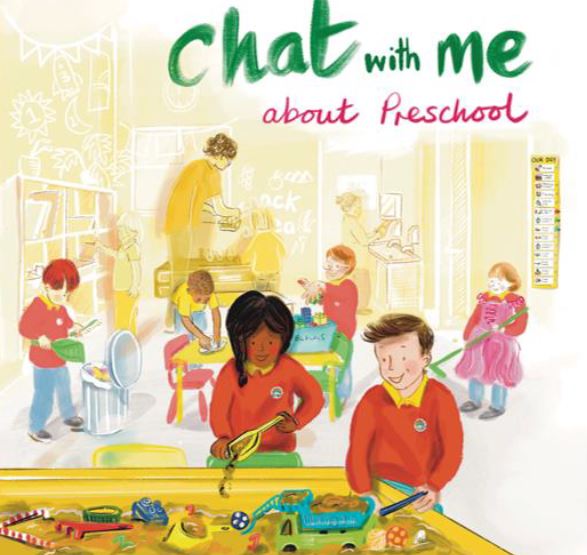
Chat with me about Preschool
Chatting together is a great way to prepare your child for new experiences. Check out this booklet for some ideas about supporting your child as s/he gets ready to go to Preschool
Sure Start Building Blocks for Communication
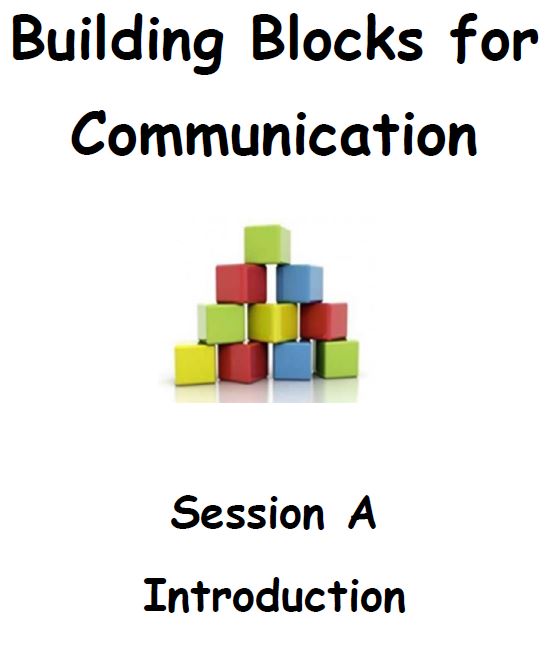
Session A: Introduction to Building Blocks for Communication- building the connection between you and your child
Welcome to Building Blocks for Communication. We are excited to get started and support you to build the connection and communication between you and your child.
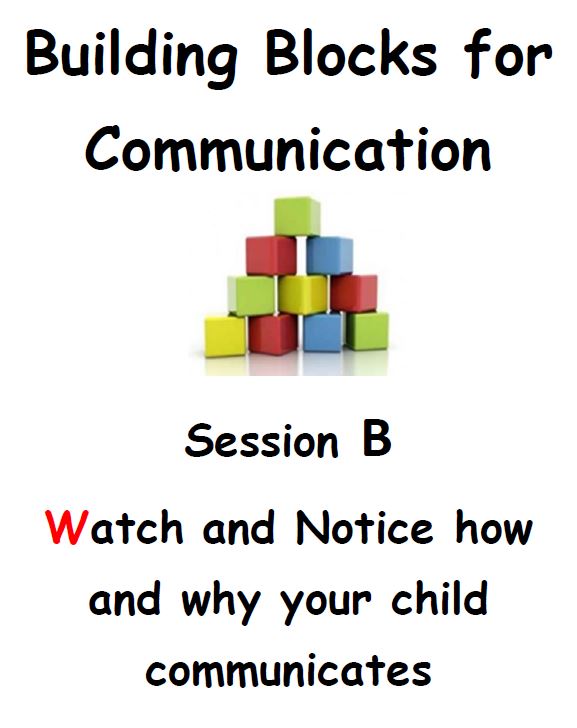
Session B: Watch and notice how and why your child communicates
In this session we will begin to think about the way your child communicates with you and the type of message they are trying to send. Remember, your child doesn’t have to use words to communicate, there are lots of other ways to send messages to you.
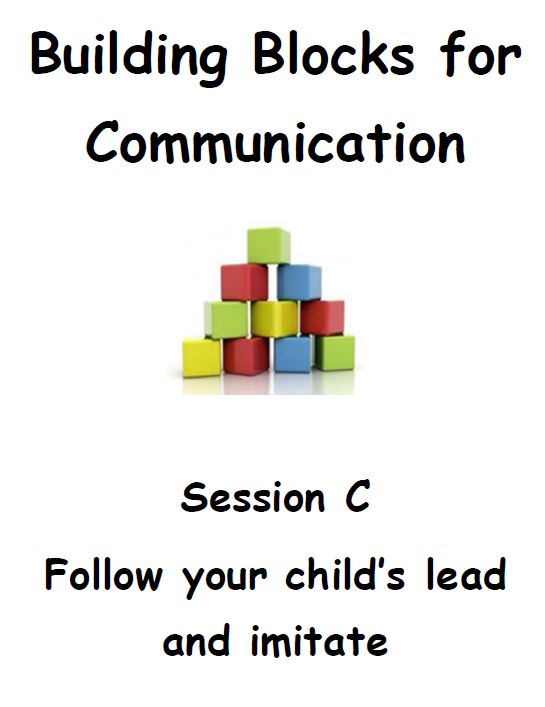
Session C: Follow your child’s lead and imitate
In this session we are going to think about what you can do when your child seems to find it difficult to send a message to you.
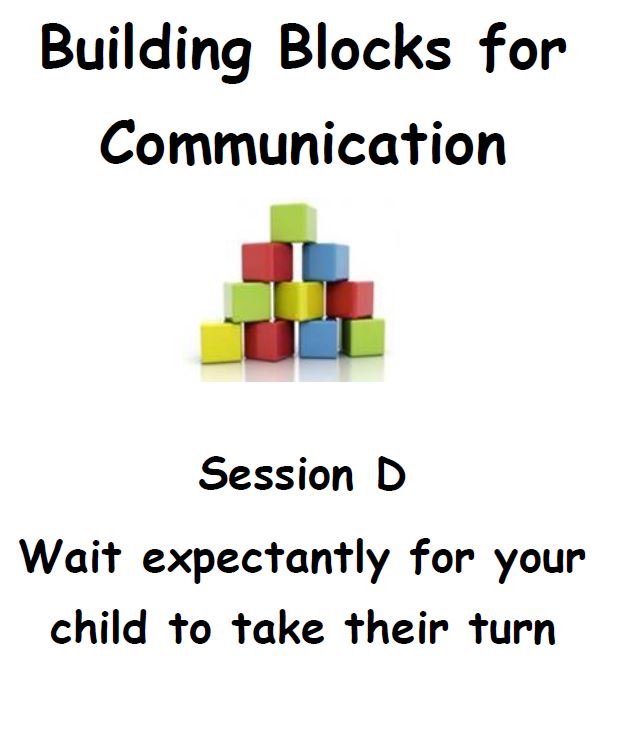
Session D: Waiting expectantly for your child to take their turn
In this session we’re going to think about the importance of waiting.
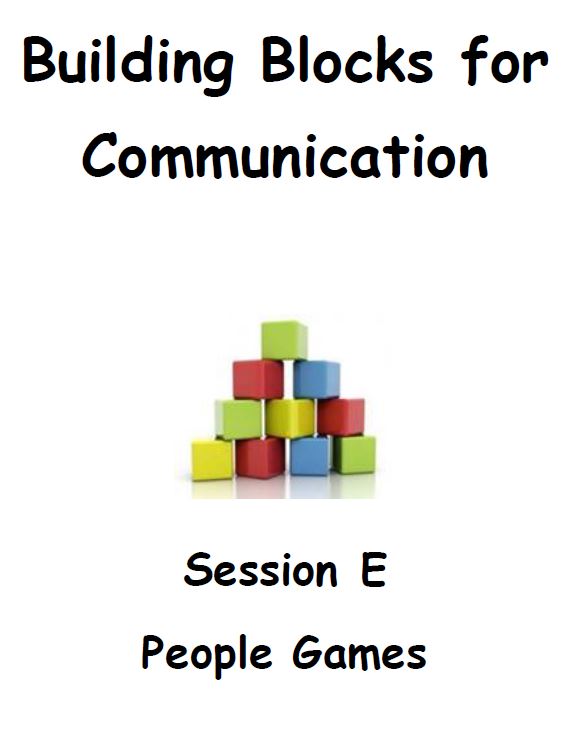
Session E: Watch, notice and wait expectantly in people games
A People Game is any routine or activity that involves interacting with another person. People Games help our child to see that interacting with you is fun.
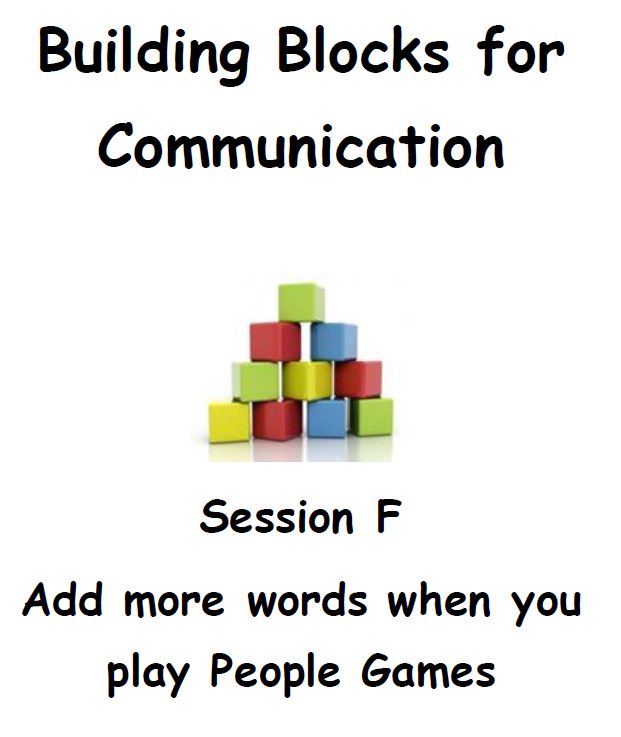
Session F: Add more words into your People Games
You can add words into your people game. Start with simple words and repeat them every time you play the game. Think about the words your child might say in the game if they could and you say them instead.
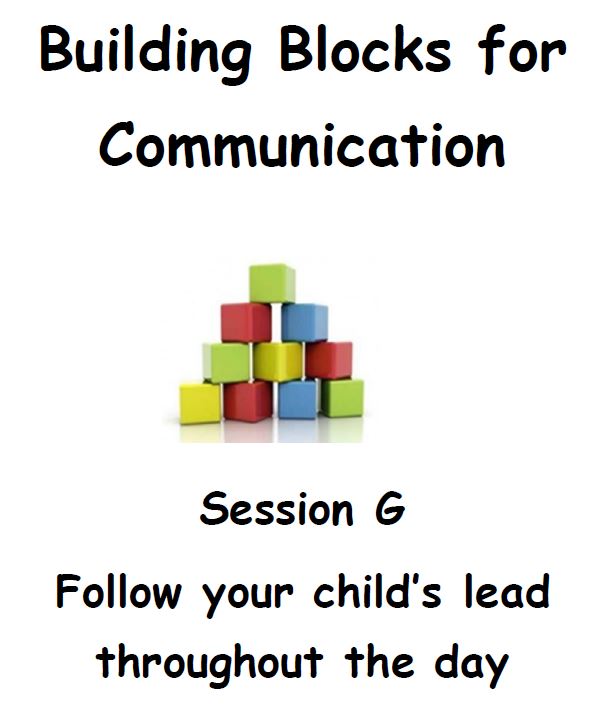
Session G: Follow your child’s lead throughout the way
You have been practicing watch, notice and wait expectantly to get the see saw of interaction going in People Games.
You can use these skills you have learnt to get an interaction going with your child at any time of the day, but to do this you must still remember to follow their lead.
You can use these skills you have learnt to get an interaction going with your child at any time of the day, but to do this you must still remember to follow their lead.
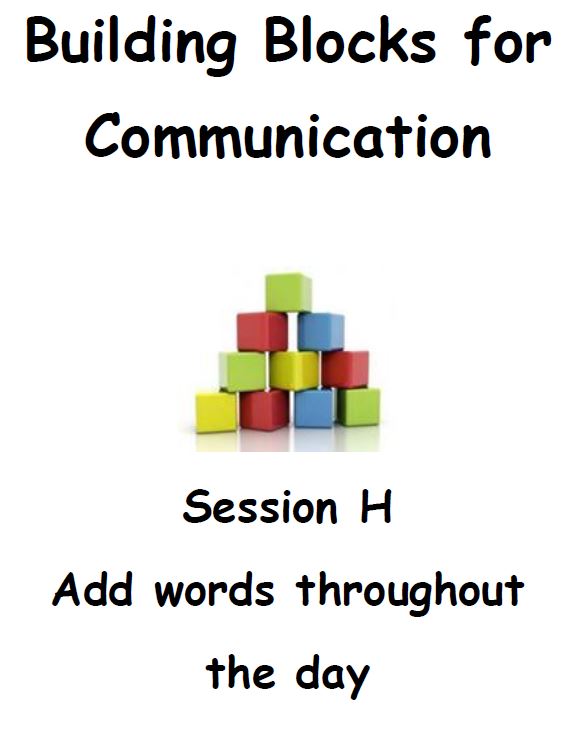
Session H: Talk with your child (add words) throughout the day
Now that you know all these different was to help your child, let’s think about how you can use them throughout the day, during all the normal stuff that you do together.
